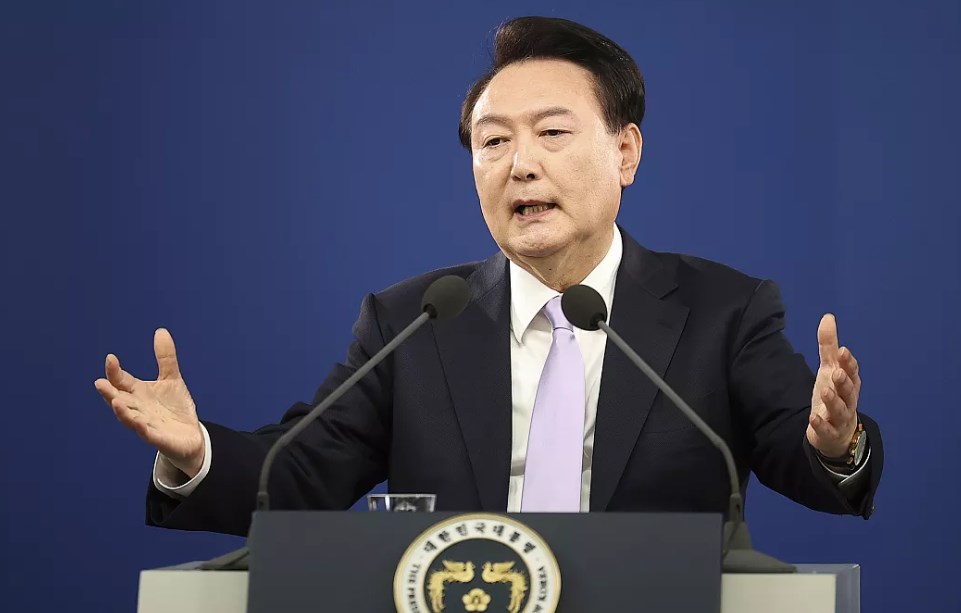South Korean President Yoon Suk Yeol declared martial law, citing national security threats and accusing opposition lawmakers of undermining democracy.
However, the National Assembly swiftly passed a resolution to end it, raising questions about political stability, the rule of law, and the impact on citizens’ freedoms in South Korea.

Defending Democracy or Overreach?
President Yoon addressed the nation in a solemn speech, warning of what he described as a precarious situation threatening South Korea’s stability.
“We are at a crossroads,” he declared, vowing to rebuild the country’s democratic foundations and eradicate anti-state forces he accused of colluding with North Korea.
His remarks painted a stark picture of a nation under siege, both internally and externally.
“The declaration of martial law will cause inconvenience to the good people who cherish our Constitution,” Yoon acknowledged, “but these measures are necessary to preserve the Republic of Korea.”
Despite his justifications, opposition leaders and even members of his own party were quick to condemn the move as unwarranted.
Woo Won-sik, chairman of the National Assembly, announced that the resolution to end martial law rendered the declaration “invalid under our Constitution.”
A Nation Divided
Tensions escalated when military forces, under the command of Army Gen. Park An-soo, entered government facilities, including the National Assembly.
News media and publications were placed under strict control, raising concerns about press freedom and civil liberties.
Yet, following the parliamentary vote, troops began to withdraw, signaling a potential retreat from what some viewed as an authoritarian overstep.
Lawmakers from both sides of the aisle expressed outrage.
The leader of Yoon’s conservative party called the declaration “wrong,” reflecting the depth of dissent even within the president’s own ranks.
What Lies Ahead?
Yoon’s next steps remain unclear.
While his declaration of martial law has stirred controversy, it also marks a critical moment in South Korea’s democratic history, being the first such declaration since the nation’s democratization in the late 20th century.
As South Koreans grapple with the implications of this unprecedented event, the global community watches closely, raising questions about the future of democracy in one of Asia’s most stable nations.
Understanding Martial Law in South Korea
Martial law represents a significant shift from civil governance to military control, typically enacted during times of emergency.
The last instance in South Korea occurred in 1979.
For many, this latest declaration has revived painful memories of past political turmoil and authoritarian rule.
President Yoon: A Polarizing Leader
Elected in 2022, Yoon Suk Yeol has often found himself at odds with South Korea’s opposition-led parliament.
From controversial remarks during his campaign to allegations of political misconduct, his tenure has been anything but smooth.
This latest chapter in Yoon’s presidency adds to his complex legacy—a legacy that now stands at a crossroads, much like the nation he leads.